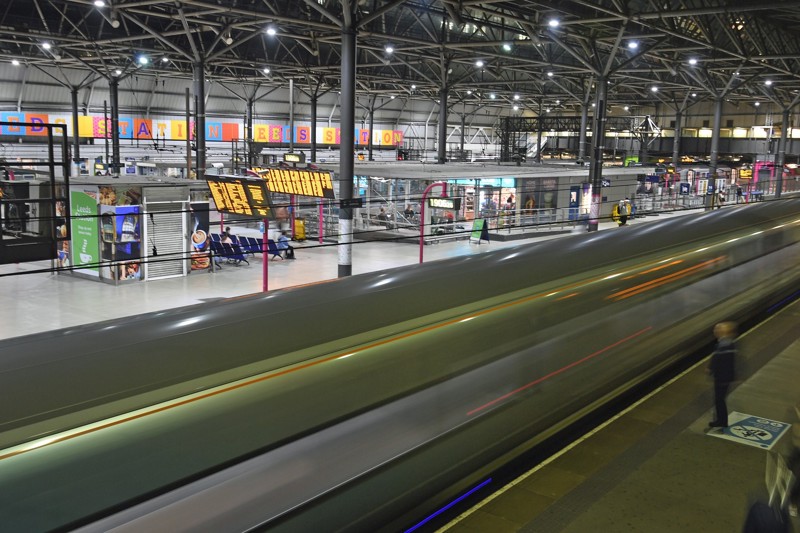
A review led by Lord David Blunkett has unveiled a phased rail investment blueprint for Yorkshire, which it hopes will revolutionise connectivity across the region and inject billions into the local and national economy.
“Yorkshire’s Plan for Rail”, which will be launched today in Leeds alongside the region’s three metro mayors, has outlined a 10 to 15-year vision to modernise outdated Victorian-era infrastructure, tackle poor performance, and encourage economic opportunity. The report states that if delivered in full, it could add £20 billion to the regional economy and generate 83,000 new jobs.
Speaking ahead of the launch, Lord Blunkett said: “Yorkshire has been punching under its weight for far too long.
“This is a once-in-a-generation opportunity to fix our broken railways and deliver real benefits not just for Yorkshire, but the whole of the North and beyond.”
The report’s findings show that key hubs like Leeds, Sheffield and York suffer some of the worst delays in the country. It also claims that the region suffers from poor reliability, limited capacity, and an ageing train fleet—Northern’s average fleet age is 23.6 years.
It has left the region with a network “no longer fit for purpose,” according to West Yorkshire Mayor Tracy Brabin.
Brabin added: “We owe it to future generations to secure our fair share of funding and build a rail network that serves our communities, drives growth and tackles climate challenges.”
The plan sets out an investment case for an initial £2.4 billion by 2030, rising to around £14 billion over 15 years. The first phase which it believes can be delivered by 2030 focuses on new stations at Haxby, Elland, White Rose, Thorpe Park, Rotherham Gateway, Waverley, Leeds-Bradford Airport Parkway, and Dearne Valley Parkway.
Some of the new station plans are currently under way, with the £26m White Rose station in Leeds recently securing funding for construction to continue whilst the station at Elland is in the early development stages. Both Haxby and Thorpe Park have had strategic business case proposals whilst the estimated £42m Leeds-Bradford Airport Parkway station has had little movement since it was initially announced in 2016.
As well as the new stations, it also plans as part of the first phase.
- Key upgrades: Platform extensions across the network, including Leeds platform 17 and Bradford Forster Square platform 0; station upgrades at Malton, Seamer and Scarborough.
- Enhanced services: Faster and more frequent trains across the Penistone Line, Esk Valley, York–Scarborough, Leeds–Goole, and Bradford–King’s Cross.
- Infrastructure transformation: Business case development for a new through-station at Bradford and capacity increases at Leeds and Sheffield.
- Rolling stock: New trains for Northern to enable longer, more frequent services.
- Light rail: Investment to renew South Yorkshire’s Supertram and begin construction of West Yorkshire’s tram network.
Alongside this, the West Yorkshire combined authority is continuing with its plans for its West Yorkshire Metro project in which the government pledged £2.5bn to get the scheme up and running. The planned route is expected to be announced later this year.
Lord Blunkett and the region’s mayors are now urging the government to back the vision as part of the upcoming 10-year infrastructure spending review due this summer.
South Yorkshire Mayor Oliver Coppard added: “We now have a plan and a pathway to fix our rail system. What we need is the political will and government commitment to make it happen.”
Brabin added: "A lack of investment stretching back decades has left Yorkshire with a rail network no longer fit for purpose. This is holding back ambitious growth plans for our regions which will put more money in people's pockets.”
David Skaith, Mayor of York and North Yorkshire, stressed that the investment was vital for York and the East Coast main line.
"We need to push forward with the transformation of York Station to maximise the benefits of York Central, one of the most significant regeneration sites in the country. And we need to fix the bottleneck on the East Coast Mainline at Northallerton, which has held back progress for too long.
"We’re ready to build a better-connected North, creating the growth, opportunity, and prosperity our communities deserve."
The strategy is seperate to the ongoing £11bn TransPennine Route Upgrade investment which will significantly enhance capacity between Manchester and Yorkshire once complete. However, the current earliest estimated completion date is 2036.

















Login to comment
Comments
No comments have been made yet.